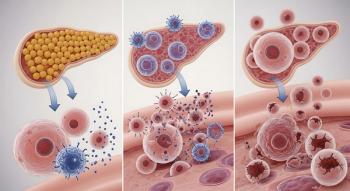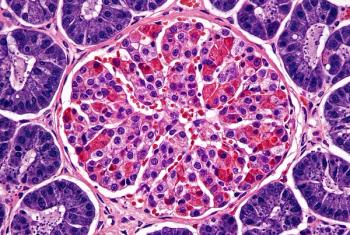
Startup Advances Dosing Study of Oral Therapy for Type 1 Diabetes
TIX100 is a small molecule inhibitor of TXNIP, a protein involved in cellular stress response and metabolism. This protein plays a role in the development and progression of diabetes.
A novel oral therapy that targets beta cell health and islet cell function has begun a phase 1 single ascending dose study, with the goal of developing this as a drug to treat patients with type 1 diabetes.
Developed by TIXiMED, TIX100 is a small molecule inhibitor of TXNIP, a protein involved in cellular stress response and metabolism. The
The company recently announced that it had completed dosing of the first dose cohort in the
Based on the safety review meeting, the clinical trial will continue with no modifications, and the next cohort will escalate to the pre-specified dose level.
TIXiMED is a start-up company launched out of the University of Alabama at Birmingham (UAB) based on the research by Anath Shalev, M.D., who is a professor and director at the UAB Division of Endocrinology. She is the founder and chief scientific officer of TIXiMED.
In December 2024, the Leona M. and Harry B. Helmsley Charitable Trust provided the company with a $2.65 million loan to advance research of TIX100. “To date, beta-cell-targeted therapies that could treat and delay the progression of T1D are an untapped strategy. Therapies such as TIX100 could fulfill an unmet medical need and improve the lives of people living with T1D,” Ben Williams, Ph.D., program officer at the Helmsley Charitable Trust, said in a
Shalev first identified TXNIP in 2002 in human islets exposed to high glucose and went on to show that it played an important role in glucose toxicity and diabetic beta cell loss. Her lab also found that genetic deletion of TXNIP protected against diabetes in different models and that TXNIP inhibition not only prevented but also reversed overt diabetes.
Animal studies of TIX100 show that it brings TXNIP levels back down into the normal range, protects beta cell insulin production, and inhibits the excessive secretion of glucagon typically seen in diabetes. Additionally, studies indicates that it does not cause hypoglycemia, fatty liver, hyperlipidemia or weight gain.
“In suppressing TXNIP with TIX100, our aim is to develop a new therapeutic option to promote the patient’s own beta cell survival, insulin production and pancreatic islet health, an approach that is distinct from any currently approved treatments,” Shalev said in a news release.
The phase 1 study is enrolling about 35 participants between 18 and 70 years of age to evaluate the safety, tolerability and pharmacokinetics of TIX100. Five different doses will be tested and compared with placebo.
Type 1 diabetes is an autoimmune disease where the immune system destroys insulin-producing beta cells in pancreatic islets. About 2 million Americans have type 1 diabetes, according to the CDC. There are currently no oral medications to treat type 1 diabetes.
Newsletter
Get the latest industry news, event updates, and more from Managed healthcare Executive.























